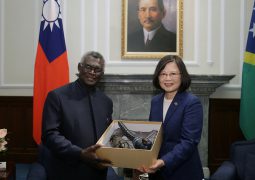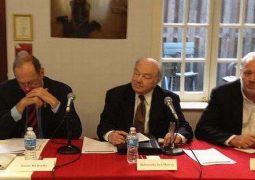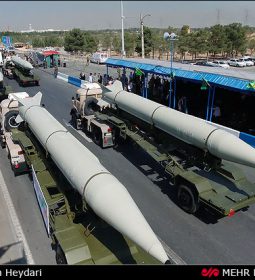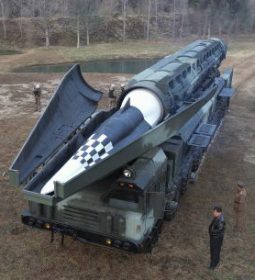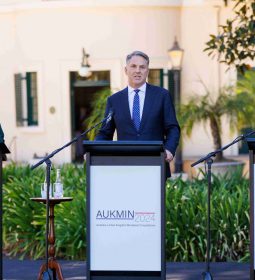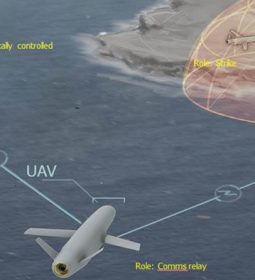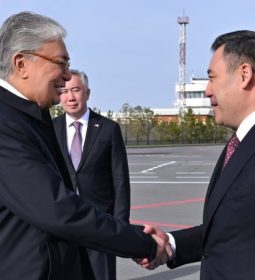As the South Korean assembly prepares to impeach the president, paralysis looms
TOKYO — South Korean lawmakers look set to impeach President Park Geunhye as soon as next week, with 40 representatives from her own party saying Friday they would support the proceedings, capping off an awful week for the embattled leader. In yet another bizarre twist in this political saga, her office this week had to explain why it bought 364 Viagra pills for the president — they were apparently for altitude sickness — and her approval rating sank to a new historical low of 4 percent. But Park is digging in against the moves to oust her, meaning South Korea now faces a power vacuum that could stretch for months. “If she won’t go, the government is going to be paralyzed,” said Robert Kelly, a professor of political science at Pusan National University. The impeachment process could take six months. In the meantime, Park has lost her legitimacy in the eyes of the opposition as well as vast swathes of the general public and will have great difficulty in making decisions, Kelly said. “We could be looking at stasis for the next 16 months,” he said, referring to the date when Park’s fiveyearterm officially ends. [Here’s what’s involved in impeaching a president in South Korea] Park is accused of enabling her lifelong friend, Choi Soonsil, to use their relationship to extort money from big businesses and to wield extensive influence over the running of the country. Choi has now been indicted on charges of coercion, fraud and abuse of power, and prosecutors say Park was an accomplice to the crimes. And still, the scandal continues to widen. This week prosecutors raided the headquarters of leading conglomerates including Samsung, SK and Lotte, as well as the offices of the national pension fund, looking for evidence in their influence peddling investigation. Prosecutors also searched offices at Ewha Womans University in Seoul, which has been accused of bending the rules to admit Choi’s daughter, and benefiting from it. But Park has refused to submit to questioning and has refused to bow to the hundreds of thousands of people who have been protesting every weekend — and are due out against this Saturday — calling for her to step down. A new Gallup Korea poll released Friday, which had a margin of error of 3.1 percent, put Park’s approval rating at 4 percent — the lowest it had every recorded for any president since democratization in 1987. She recorded an astonishing zero percent support rating among respondents in their 20s and 30s. Lawmakers had been hesitant to start impeachment proceedings because they could stretch into the middle of next year, and Park is due to leave office in early 2018 anyway. But her continued intransigence, coupled with the prosecutors’ allegation last weekend that Park was complicit in the corruption, has spurred lawmakers into preparing to try to force her out. [Prosecutors link South Korean president to corruption scandal] At least 40 representatives from the ruling Saenuri Party support the idea of impeaching Park, Hwang Youngcheul, one of the lawmakers said Friday after surveying his party. If they joined the 171 opposition and independent lawmakers, they would easily overcome the twothirds threshold they need to impeach the president. The assembly could vote on the motion as early as Dec. 2, but certainly no later than Dec. 9, Woo Sangho, the main opposition Democratic Party’s whip, told reporters this week. Park would immediately be stripped of her powers and would have to hand over the day to day running of the country to the prime minister while the Constitutional Court reviewed the motion. The president seems to be betting that the conservativeleaning court would side with her, or at least would be unable to uphold the impeachment motion. Six of the nine justices are conservative and two, including the chief justice, will retire at the beginning of next year. Six of the remaining seven would need to support the impeachment motion to uphold it. South Korea has once before tried to oust a democraticallyelected president — Roh Moohyun in 2004. Roh was impeached by the assembly after supporting his party’s candidates in elections, violating political neutrality rules. While the court agreed he’d technically broken the law, it ruled that his breaches were not grave enough to remove him from his position. But Park is in a very different situation, analysts say, because prosecutors say they have evidence of her involvement in serious crimes. [Scandal shows that ‘Korean disease’ of corruption is far from cured] Already, there is a sense of a power vacuum in Seoul. Park has largely retreated from public view. She did not attend the APEC summit in Peru last weekend, instead sending her prime minister, and there is now considerable doubt about whether she will attend a trilateral meeting with the Japanese and Chinese leaders in Tokyo next month. Her only publiclydisclosed appointments this month have been welcoming the president of Kazakhstan, meeting some Buddhist monks and swearing in new ambassadors. However, she did sign an order authorizing a longawaited intelligencesharing deal with Japan this week. Kelly at Pusan university said he wouldn’t be surprised if North Korea tried to capitalize on the current limbo in Seoul — and in Washington. “Now we’re in a situation where Park is losing power, Donald Trump is off the wall and we know North Korea likes to provoke,” he said. “This is a perfect time for some North Korean shenanigans.” The next U.S.South Korean military drills, traditionally a time of heightened tensions on the peninsula, will begin in February. But James Kim at the Asan Institute for Policy Studies in Seoul said that even if Trump did make good on some of his campaign threats — like questioning the military alliance with South Korea and revoking the countries’ bilateral free trade deal — any change would take time. “Even if the Trump administration decides to break the alliance, the current agreement is valid until 2018 so any changes will take time,” Kim said. “And on the KoreaU.S. FTA, Trump has made it clear that his priorities in this first 100 days are TPP and Nafta,” he added, referring to the multilateral trade pacts. “So right now, we’re just in waiting mode.” Anna Fifield is The Post’s bureau chief in Tokyo, focusing on Japan and the Koreas. She previously reported for the Financial Times from Washington DC, Seoul, Sydney, London and from across the Middle East.
- Previous Asia & Pacific Duterte and Trump will dramatically recast U.S.-Philippine ties. But how?
- Next ANZ, Macquarie Say Employees Tried to Rig Ringgit Benchmark Rate in Singapore Identities of individuals weren’t disclosed



